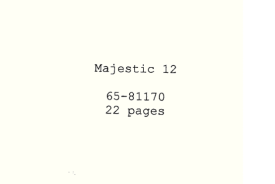Pretty faces are less likely to be remembered than ugly ones, according to Friedrich Schiller University Jena (Germany) study. Psychologists said that among the attractive faces, those with distinctive features such as great eyes and full lips are more memorable.
"On the one hand we find very symmetrical and rather average faces appealing," Researcher Dr. Holger Wiese said in a press release. "On the other hand, people who are perceived as being particularly attractive stand out by additional traits, which distinguish them from the average."
For the study, the psychologists showed a series of photos of faces to participants. Among the photos, half of the faces were deemed more attractive and the other half as unattractive. Participants were shown the photos only for a few seconds before being tested on their memory. The researchers used EEG-recordings, revealing their brain's electric activity, during the experiment.
The researchers found that the participants were able to easily remember the unattractive faces than the beautiful ones. But, they were also able to recollect the good-looking photos, provided they possessed some distinct features.
To explain the finding better, the researchers took the example of Angelina Jolie. One of the leading American actresses, Jolie is instantly remembered because of her characteristic lips. Researchers said that specific features like big eyes, fuller lips or a gorgeous smile compels people to remember a certain face for longer durations rather than the overall appeal.
"We could show that the test subjects were more likely to remember unattractive faces than attractive ones, when the latter didn't have any particularly noticeable traits. Until now we assumed that it was generally easier to memorise faces, which are being perceived as attractive - just because we prefer looking at beautiful faces," Dr Wiese said. The study has found that such a correlation cannot always exist.
The finding is published in science magazine Neuropsychologia.
© 2026 University Herald, All rights reserved. Do not reproduce without permission.








